Dennis Ting Teck Wah had spent a good portion of his life pursuing financial security and success.
At 27, he achieved it, bagging a four-figure salary as an equipment superintendent for a local higher education institution.
Day in and day out, he toiled through the nine-to-five slog, sitting through meetings upon meetings.
But there was something that kept nagging at him.
For months, one constant thought sat snugly at the back of his mind; video games.
They were not, however, the games he wanted to play after work, nor were they any upcoming games to look forward to; they were games that he wanted to create.
In August 2021, at the age of 31, Ting tendered his resignation and began work on building the foundation for his future as an independent game developer (indie dev).
A year later, No One Studios (N1S) was born.
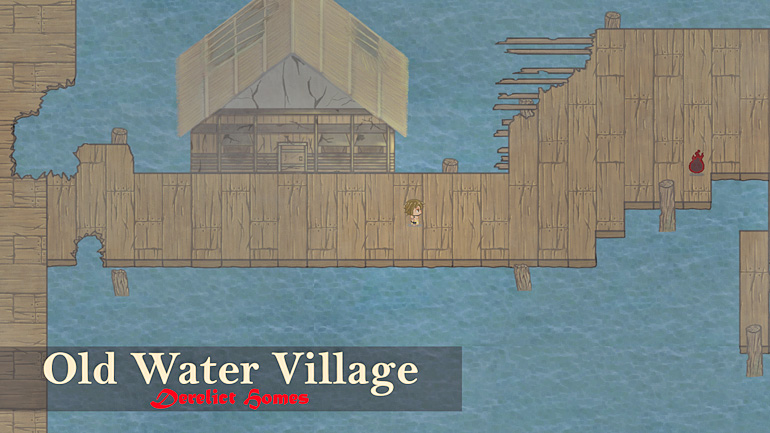

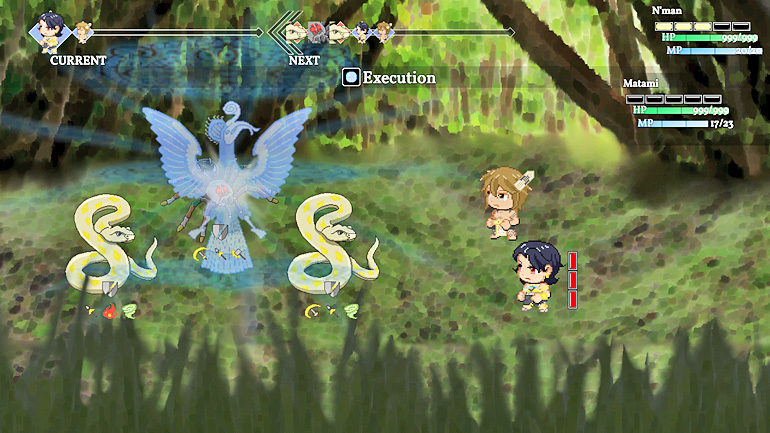


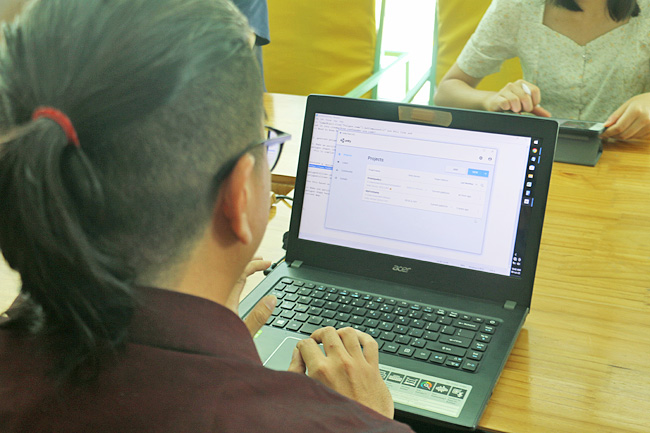
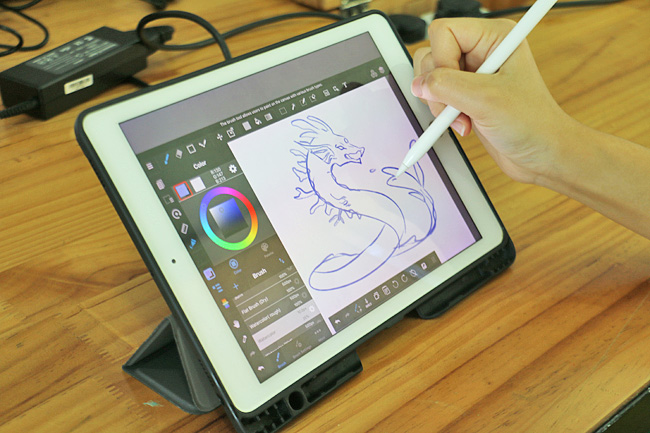

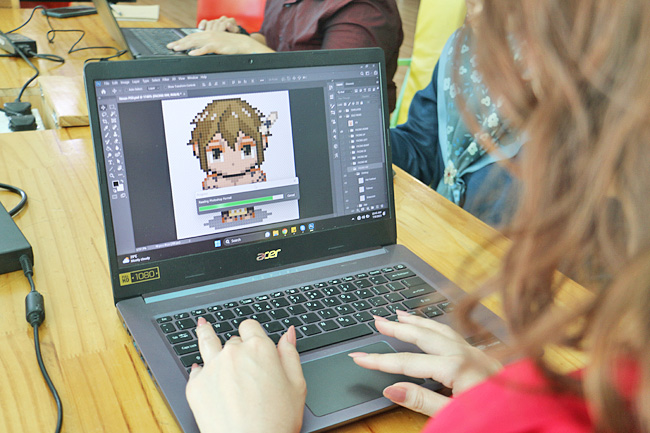
CHARACTER LORE
Growing up in a strict household, Ting was constantly pressured to perform his best.
With a degree in ecology and environmental biology and a masters in ecological application, Ting was primed for success.
“It’s been all work; straight ‘A’s here, straight ‘A’s there, get this job or get that job. I realised that I wasn’t happy,” he said.
Video games had always been a large part of his life. It was a source of solace for the fledgling indie dev, an avenue to escape the stresses of the working adult life.
He recalled the first game he played when he was eight.
“I was never this hard-working person when I was younger. I always woke up late, all the time, until my parents got a PlayStation (PS One) for us siblings,” he shared.
“Since that day, I would wake up at the crack of dawn just to play this Japanese game that wasn’t even written in English, so I had to go through the menus blindly,” added the now 33-year-old.
It was Dennis’ first video game and though the game itself was nothing special, that small taste of a new world outside of reality stuck to him.
“A game is something so small. I mean, it’s just a disc, right? But it opens up a whole different world that would make you forget everything else, not in a bad way (but) in a weird way. (It) allows you to be more relaxed (so) you can return to the real world feeling better.”
PRESS START TO PLAY
Despite being a student of the pure sciences with no computing background, he attempted to dip his toes in game development by applying for a standard Computer Science course when he started university. “Computer science isn’t the same as game development. There may be overlaps, but they are two very different subjects. So naturally, it didn’t go well,” he explained.
Ting lasted only a year as a computer science major, having to swap to environmental biology the year after, a decision that had to be made due to his declining academic record.
“Ironically, I did a lot of statistical programming in those four years (in environmental biology). That helped a great deal in teaching me how to code.
“As a computing dropout, I enjoyed the statistical modules as it was more on the practical application of programming.”
After graduating, Ting was unemployed for a year, spending his time trying out a couple of odd jobs.
“I did try to start game developing in earnest at this point, but I got a ‘traditional job’ as a part-timer not long after (and) ended up with a permanent position where I spent more than five years working. I didn’t do much game developing at the time,” he admitted.
LEVEL UP
Ting’s journey as an indie dev has been rather hit-or-miss. He went through periods of intense learning, spending months at a time getting to know the tools needed to lay down the groundwork and infrastructure of a video game.
These, however, were interspersed with multi-year droughts of game development, attributed to his previous nine-to-five.
As a consequence, upon his resignation, Ting went full-speed ahead.
“At this point, I already had a lot of the individual skills required (to make games); digital artwork, sound composition and editing, programming and various experiences with game engine software.”
Ting spent the year after his resignation “solo-developing for experience”, settling on a PC game and utilising commercial software catered for creating role-playing games (RPG).
“Whenever you make a game, you must make the database and the infrastructure first, how does it play, what are the mechanics and only later do you fill all the stuff that becomes fun like the environment, the characters.”
Ting is, first and foremost, a coder, but for a full-fledged game to be made, he would need a team of talented individuals to breathe life into his ideas.
“I recruited four other locals to assist me around December (last year). I wanted to recruit and put local talents to use in this non-existent field (game development).”
A NEW CHARACTER HAS JOINED YOUR PARTY
The indie dev group currently consists of five members, including Ting himself. The four other members are part-timers who jumped aboard the project with aspirations to help foster the indie dev scene in Brunei.
With a full team consisting; a character spriter, enemy designer, game environment artist, special effects and background music (SFX & BGM) composer and with Ting himself as a programmer and founder, the crew went to work on their pilot project, a turn-based RPG that is loosely based on Southeast Asian folklore.
He set aside a small budget for his project with a strict schedule of three months to complete.
“I understand that what we are doing is risky, considering the lack of market for game developing in Brunei, but I made sure to brief the team fully before they agreed to be part of this process,” said Ting.
Character spriter, Siti Nur Amirah binti Amir had always dreamed of working in game development after feeling discontent with her previous marketing job.
“I mainly joined out of passion. When I found out about Ting and his vision of pioneering the local indie dev scene, I thought it was a noble thing to do.
“Because even though there is a big chance that this might fail, it takes bravery to even just try. So, when I saw the job ad, I thought, why not?” added the 23-year-old.
GAME OVER | CONTINUE? | YES/NO?
At the time of writing, their pilot project had been uploaded for more than a month and for the time being, its members are dispersed, working on their own projects, waiting with bated breath for the group to catch a second win.
“We’re currently looking to see if we can get some financial backing to support our staff better, a bit more realistically.
“But at the end of the day, for this to be sustainable, I’ll need to find a way to increase that salary so that our workforce can pay their rent and bills. At the moment, we’re not quite there yet – but we’re hoping to work towards that goal, albeit somewhat slowly, as we make more games and continue to prove the quality of our work,” said the founder.
Reflecting on his journey, Ting has had no qualms about quitting his stable job in pursuit of a career as an indie dev.
“Many people thought I was crazy because it’s career suicide, right? (But) I don’t know what to tell them.
“I was not happy at my old job. I just wanted to do more, something that has a net positive.
It’s a huge wager, but I want to leave behind something that could make people happy.
“Most importantly, I wanted to create a platform for other creatives who are going through this time of high uncertainty and unemployment to show what they can do in the game development field and put Brunei on the map.” – Wardi Wasil


